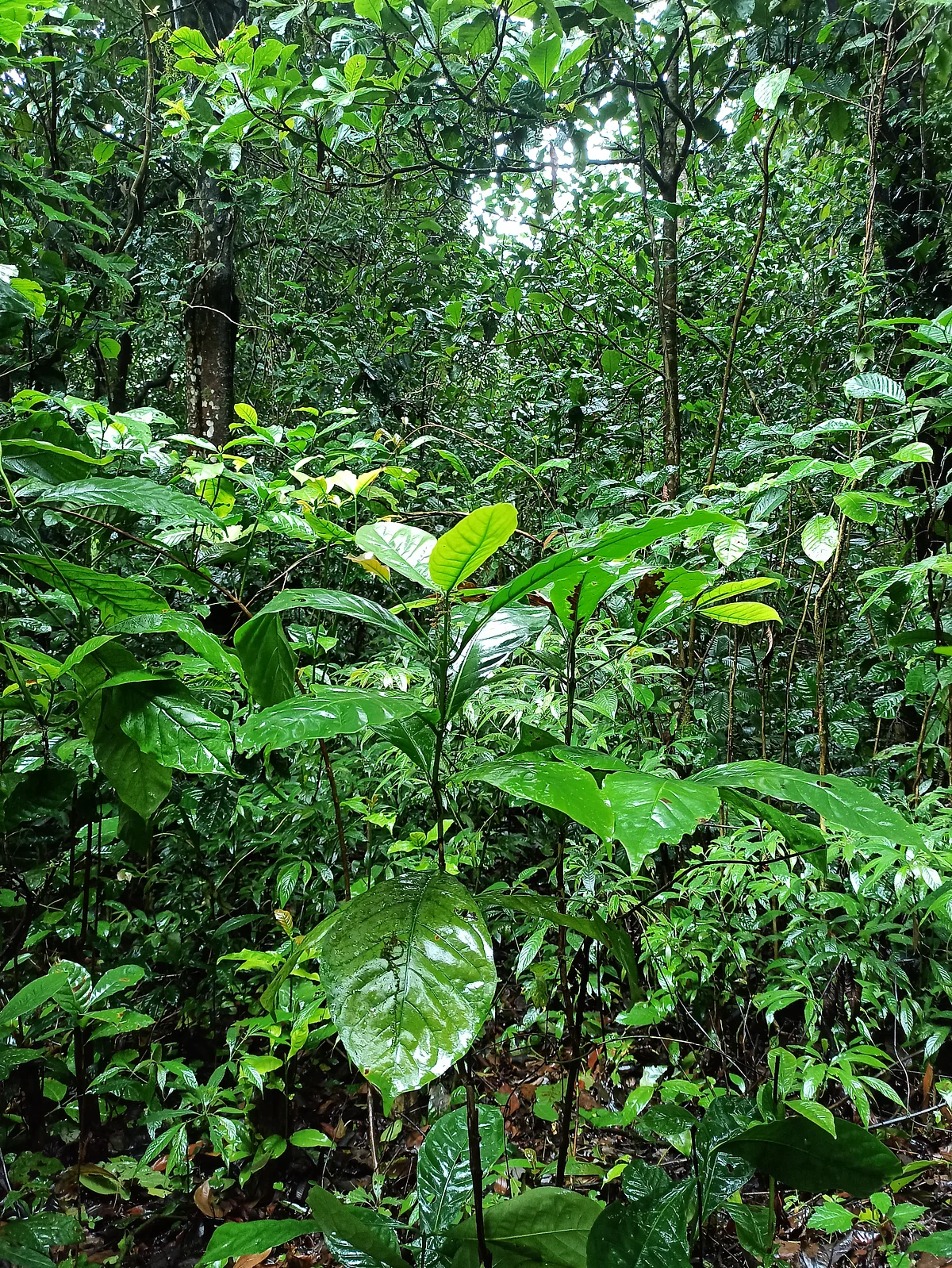Ecological restoration in the Malenadu region
Reviving forests in a production landscape
The Malenadu region in the Western Ghats of southwestern Karnataka is where coffee was first cultivated in India hundreds of years ago, and presently produces more coffee than anywhere else in the country. As coffee cultivation expanded, tropical rainforests that once clothed this region were reduced in extent and became increasingly fragmented over the past 150 years. As formal protected areas are few and far between, private lands harboring remnant rainforest fragments, forest regrowth on uncultivated lands, and coffee fields with native rainforest trees as shade hold immense significance for conserving the region’s rich and unique biodiversity. Here, we partner with local residents and landowners to raise rainforest plant nurseries, secure forest protection and restore degraded forests, and promote native rainforest species as shade trees in coffee and for other tree planting projects.
Rainforest nurseries
The limited availability of native species saplings in mainstream nurseries is a critical barrier for ecological restoration and shade tree diversification efforts. At the same time, it is extremely important that seed sources and natural regeneration in existing forests not be overexploited by nursery expansion projects. We are engaging with this challenge by piloting two collaborative initiatives – native tree nursery partnerships, and seed sourcing from coffee farms. The nursery partnership initiative strives to create space for native tree species within existing and upcoming nurseries in the project landscape. We work with partners who are willing to commit nursery space and organize infrastructure and logistics for raising native trees, which we support by sharing costs, providing training and technical inputs, and assisting with seed sourcing. One nursery run by NCF on land shared by the Kadamane Estates Company has been operational and expanding since 2022, and another was set up by Narmada Estate in partnership with NCF in 2023. We envision that the growth of existing and future nursery partnerships, resulting in improved nursery supply of native tree species, will encourage and enable more widespread forest restoration and diversification of native tree diversity on coffee farms.
The seed sourcing initiative recognizes that coffee farms that retain native tree species have tremendous potential for contributing to restoration efforts. Huge numbers of native tree seeds fall in these farms, including those produced by native shade trees themselves and those dispersed by frugivorous birds and mammals. However, as active coffee farms are regularly weeded, nearly none of these seeds and seedlings live to grow into trees. If rescued from coffee farms in time, these seeds and seedlings can considerably expand and diversify nursery supplies and boost restoration efforts, while alleviating seed collection pressures on existing forests. Our ongoing research is documenting and mapping native trees on coffee farms, and examining seed dispersal under different varieties of shade trees. As a pilot project, our nursery teams are monitoring a set of endemic and endangered trees and collecting seeds on a few partner coffee farms. We will soon expand this effort to cover more farms and a greater variety of native tree species.
Ecological restoration
We initiated restoration activities in 2023. We are partnering with landowners who have identified and committed uncultivated lands within their properties for restoration and protection in the long term. We attempt to restore sites that were deforested previously, and have become choked with Lantana and lemongrass. Here, restoration involves thoroughly clearing the invasive species while protecting any naturally regenerating native plants, followed by planting a high density (around 800 per hectare) of diverse native trees. We also work in sites where coffee was previously cultivated and persists as the dominant species under a canopy of shade trees. In such sites where canopy cover and natural regeneration are higher than the previous case, restoration can involve less intensive weeding, planting of fewer trees (300-400 per hectare), more opportunities for restoring shade-loving forest-specialist species, and less expensive alternatives to tree planting, such as direct seeding.
Collaborators
Alumni: Sanath RM, Rama Narayanan H, Rohit Nandakumar

